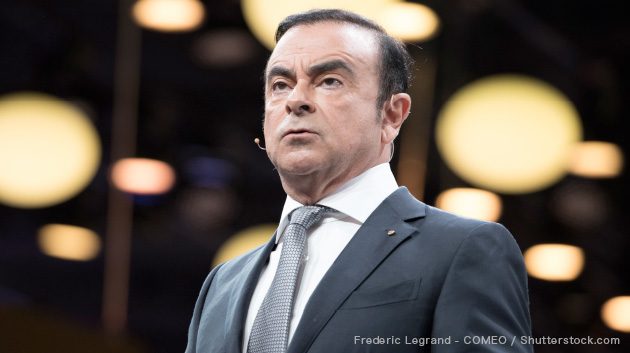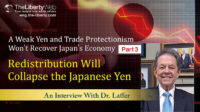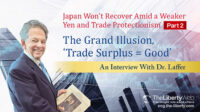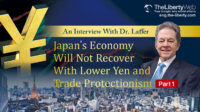Ghosn Bashing Heats Up in Japan
Is He A Demon of Greed?
Frederic Legrand – COMEO / Shutterstock.com
“Charismatic Man Falls To The Ground,” “Money Lover Embezzles Nissan Money.”
Ever since the Tokyo Special Investigation Squad arrested Carlos Ghosn, former Chairman and CEO of Nissan Motor Co., the Japanese media has been attacking the businessman’s personal integrity.
True it is partly his own fault. During his 20 years in power as Nissan’s CEO perhaps he also grew conceited, and conceit makes enemies. Considering how the French government was pushing for Renault to turn Nissan into a subsidiary, the Japanese Nissan executives have a good enough motive for wanting to remove Ghosn from power.
They planned a coup, and leaked information to the police so a third party could enter to resolve the power rivalries inside Nissan.
Police then leaked Ghosn’s “unbelievable crimes” to the media. The media then inflated the stories and created the image of Ghosn as a demon of greed.
But is Ghosn really a demon of greed who embezzled Nissan’s funds and used the company as his personal wallet?
Ghosn’s Convincing Argument
Amidst his scandal, Ghosn appeared in court on the 8th of January and declared that he was a victim of “meritless and unsubstantiated” charges.
While the Japanese media reports lean on the police side, the Wall Street Journal published the leading article “Carlos Ghosn in Wonderland” on the 8th of January, which stated that Ghosn’s argument was more convincing than that of the police. In fact, it criticised Japan’s judicial system where they detain their suspects until they confess their guilt, thus coming out with a guilty verdict for 100% of the cases.
Let us now look at the charges against Ghosn, and the suspect’s defence.
The first alleged crime was that he did not enter ¥5 billion worth of retirement benefits in the securities report.
To this allegation, Ghosn questioned why he had to report ‘promises of payments’ for workers after their resignation.
Indeed, the payment report he failed to enter was not payment that was due any time soon. There is a possibility that the money would never be paid to the workers if, for instance, Nissan’s business conditions turned downhill. It is highly questionable whether the failure to enter the money in the report is actually illegal.
The next alleged crime was that Ghosn pushed his investment losses onto Nissan, and subsequently embezzled ¥1.6 billion.
To this, Ghosn said he temporarily used Nissan credit as collateral for a loan, but his millions of yen in losses was a personal burden, and has not affected Nissan.
Surely enough, not only did Nissan incur no losses, they didn’t even know about Ghosn’s failed investments because he had transferred everything over to his asset management company before the losses could affect Nissan.
About his alleged illegal remittance of ¥1.6 billion to a Saudi Arabian entrepreneur, he argues that the money was used as compensation for Nissan-related work, such as lobby activities for the Saudi Arabian government and royal family, and resolving serious troubles between Nissan and the local car dealers.
There was one problem in the Japanese police investigation. The police had not questioned the Saudi Arabian entrepreneur about the money. The police allege that Ghosn sent huge sums of money from Nissan to his Saudi Arabian friend (a non-Nissan worker), to later pocket it himself. The international media were dumbfounded that such a thing could happen in a world-class Japanese business: hence the “Wonderland” sobriquet.
So, these are the two conflicting sides. When all is said and done, we ought to analyse both the police-leaning media reports and Ghosn’s defence with a fair and balanced view.
Beware Jealousy Towards Successful Ones
Japan is now heated up in bashing Ghosn, but behind this intensity, there is an underlying jealousy towards high-income earners.
Master Ryuho Okawa, founder and CEO of Happy Science, speaks of the dangers of hatred towards successful people who earn and own great wealth.
Japan has a tendency to pull the country towards economic recession. We have to be really careful about this. [from The Lecture to “The Laws of Bronze” given 6th January 2019]
Crimes must be punished, but we must not create a society where we drag down those people who created wealth through hard work, because it goes counter to the spirit of capitalism.



















